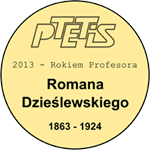The aim of the conference is to integrate new interdisciplinary scientific environment of selected issues in the field of electrical engineering, electronics and mechatronics.
AS THE NEW PAPERS SUBMITTED ,NEW ,COHERENT THEME SESSIONS WILL BE CREATED
- Mathematical models of electronics components and systems,
-Methods and tools for modeling and simulation of selected electrical systems,
- New solutions in the field of construction, technology and metrology of electrical engineering,
- Processing, optimization, and signal processing,
- Automation and control of electrical machines,
- The method of calculation of electromagnetic fields
- The impact of electromagnetic fields on organisms and the environment,
- New findings in the field of electrical engineering, electronics and related fields,
- Protection of the devices against electromagnetic surge,
- The practical implementation of systems, components and their applications,
Presented papers should focus on the design, construction, operation, servicing and diagnosis of mechatronic systems (robotic production lines, automated driving systems, integrated manufacturing systems, robots, cars, aircraft, unconventional energy systems, energy storage, etc.) and modern elements of mechatronics (electric, pneumatic, hydraulic actuators, electromechanical transducers, sensors, optoelectronic and piezoelectric sensors, devices using Smart Materials (intelligent materials -Shape Memory Alloy type – SMA, magnetic and magnetorheological fluids, etc.)
Topics of interest include:
• Power Electronics & Energy Conversion
• Renewable Energy & Sustainable Development
• Power Systems
• Electronic System on Chip & Real Time Embedded Control
• Signal and Image Processing & Computational Intelligence
• Electrical Machines & Drives
• Control Systems & Applications
• Sensors, Actuators and Systems Integration
• Mechatronics & Robotics
• Factory Automation & Industrial Informatics
• Information Processing and Communications
• The method of calculation of electromagnetic fields
• Power systems for enhanced services for wireless communications.
• Energy storage systems – electrochemical and alternative systems.
• Smart Grid Systems.
• Powering Large Information Communications Technology (ICT) facilities and networks.
• Distributed generation: renewable and alternative power generation and energy storage.
• Energy efficiency.
• Integrating the diverse power requirements of cable, wireless, and the Internet.
• Outside plant infrastructure.
• Disaster preparation, impact analysis and recovery.
• Cable system operation, administration and maintenance.
• Power for cable TV.
• DC power plants—rectifiers, distribution, computer supervision, remote monitoring, and control.
• Power system architectures.
• Fuel cell energy and backup systems.
• DC/DC converters—topologies, design, and simulation.
• AC power supplies—inverters, UPS, power supplies for computer systems and terminals.
• Engine-alternators—diesel and turbine.
• Building and environmental system design—energy conservation techniques.
• Physical and thermal design—energy-efficient design.
• Electromagnetic compatibility—EMI, ESD, EMP.
• Grounding and bonding of equipment, systems and building.
• Standards and specifications.
• Hybrid and Semiconductor Technology
• Design Methods and Computer Simulations
• Electronics Materials and Components
• Microcircuits Applications
• Packaging and PCB
• Quality and Reliability Evaluation
• Thermal Management
• Optoelectronics and Photovoltaics
• Education in Electronics
EMC:
Low frequency EMC
EMI control
EMC measurments
Signal integrity

